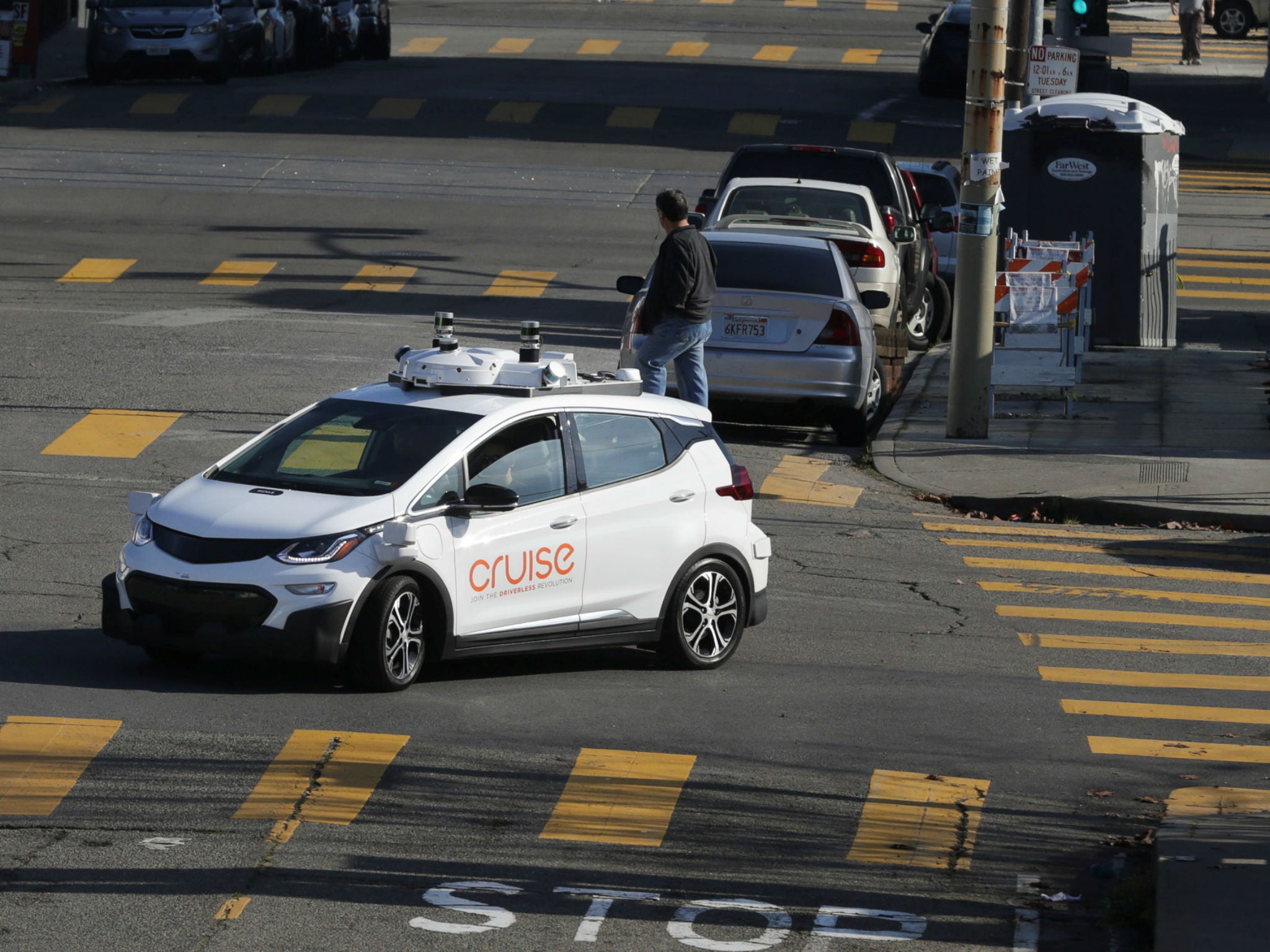Self-driving cars attacked by angry San Francisco residents
Human attacks have accounted for a third of accidents this year

Your support helps us to tell the story
From reproductive rights to climate change to Big Tech, The Independent is on the ground when the story is developing. Whether it's investigating the financials of Elon Musk's pro-Trump PAC or producing our latest documentary, 'The A Word', which shines a light on the American women fighting for reproductive rights, we know how important it is to parse out the facts from the messaging.
At such a critical moment in US history, we need reporters on the ground. Your donation allows us to keep sending journalists to speak to both sides of the story.
The Independent is trusted by Americans across the entire political spectrum. And unlike many other quality news outlets, we choose not to lock Americans out of our reporting and analysis with paywalls. We believe quality journalism should be available to everyone, paid for by those who can afford it.
Your support makes all the difference.Technology and automotive companies touting self-driving cars as the future of transportation may have some work to convince San Franciscans, who keep attacking the vehicles.
A third of traffic collisions involving autonomous vehicles in 2018 so far featured humans physically confronting the cars, according to data released by California.
In one case, a taxi driver exited his cab and slapped the front passenger window of a General Motors Cruise parked behind him. No one was hurt, though the car sustained a scratch.
In another case, a pedestrian hurtled across an intersection despite a “do not walk” sign, shouting as he went, and rammed his body into a different Cruise’s rear bumper.
If they were hoping to register their disapproval of autonomous cars, they were working against both the burgeoning autonomous car industry and the state of California, which last week said it would allow driverless cars to operate without onboard backup drivers.
The change marked a significant development for self-driving car companies that have already logged millions of miles on public roads as they seek to hone the technology.
Sitting near the epicentre of the tech industry, San Francisco has already had to thresh out the proper way to incorporate self-operating technology into public life.
Late last year the city’s Board of Supervisors passed an ordinance limiting delivery robots from cruising public sidewalks. Supervisor Norman Yee, who initially sought to boot the bots from public sidewalks altogether, warned about a future where “20,000 robots roaming around” had displaced pedestrians into the street.
Soon after that vote, the San Francisco Society for the Prevention of Cruelty to Animals announced it would stop using a security robot after accusations that the machine was harassing homeless people led to threats against the animal welfare nonprofit.
Join our commenting forum
Join thought-provoking conversations, follow other Independent readers and see their replies
Comments